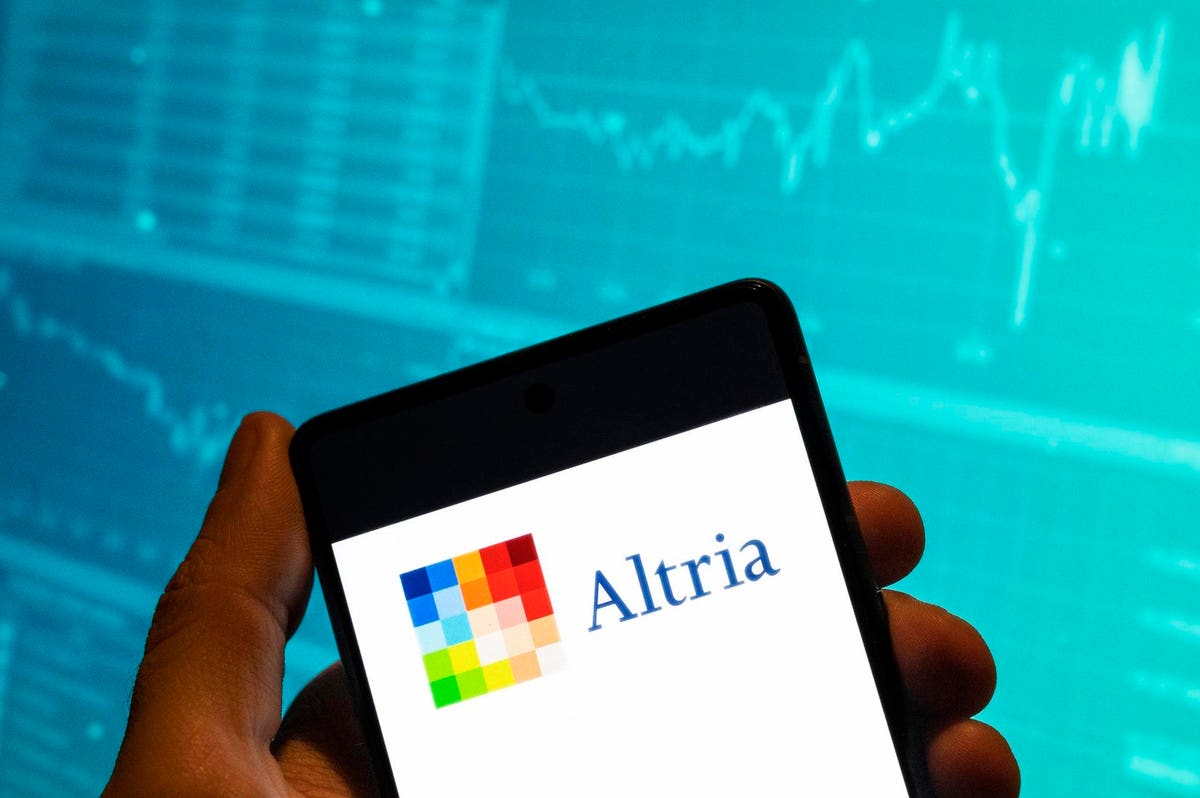Altria stock (NYSE: MO) currently trades at $45 per share, around 20% below its level of $57 on May 7, 2022 (pre-inflation shock high), and it seems like it has the potential for sizable gains. Altria saw its stock trading at around $51 at the end of June 2022, just before the Fed started increasing rates, and is still 12% below that level. In comparison, the S&P 500 gained about 6% during this period. The stock price has suffered over recent months due to a mixed Q1, which saw a low double-digit decline in the volume of smokable products sold and a modest margin decline. Still, the company re-affirmed its full-year outlook of 3% to 6% adjusted earnings growth.
Returning to the pre-inflation shock level means that Altria stock will have to gain more than 25% from here. While it has the potential to recover to those levels, we estimate Altria’s valuation to be around $50 per share, about 12% above the market price. This is because the recent uncertainty in the financial sector has made investors concerned about a potential recession. Altria’s business may see an adverse impact on its cigarette volume if the U.S. economy were to go into recession, with customers shifting to lesser-priced alternatives.
Our detailed analysis of Altria’s upside post-inflation shock captures trends in the company’s stock during the turbulent market conditions seen over 2022. It compares these trends to the stock’s performance during the 2008 recession.
2022 Inflation Shock
Timeline of Inflation Shock So Far:
- 2020 – early 2021: Increase in money supply to cushion the impact of lockdowns led to high demand for goods; producers unable to match up.
- Early 2021: Shipping snarls and worker shortages from the coronavirus pandemic continue to hurt the supply
- April 2021: Inflation rates cross 4% and increase rapidly
- Early 2022: Energy and food prices spike due to the Russian invasion of Ukraine. Fed begins its rate hike process
- June 2022: Inflation levels peak at 9% – the highest level in 40 years. S&P 500 index declines more than 20% from peak levels.
- July – September 2022: Fed hikes interest rates aggressively – resulting in an initial recovery in the S&P 500 followed by another sharp decline
- Since October 2022: Fed continues rate hike process; improving market sentiments help S&P500 recoup some of its losses.
In contrast, here’s how Altria stock and the broader market performed during the 2007/2008 crisis.
Timeline of 2007-08 Crisis
- 10/1/2007: Approximate pre-crisis peak in S&P 500 index
- 9/1/2008 – 10/1/2008: Accelerated market decline corresponding to Lehman bankruptcy filing (9/15/08)
- 3/1/2009: Approximate bottoming out of S&P 500 index
- 12/31/2009: Initial recovery to levels before accelerated decline (around 9/1/2008)
Altria and S&P 500 Performance During 2007-08 Crisis
MO stock fell from nearly $70 in September 2007 (pre-crisis peak) to $15 in March 2009 (as the markets bottomed out), implying MO stock lost over 75% of its pre-crisis value. It recovered post the 2008 crisis to levels of around $20 in early 2010, rising roughly 27% between March 2009 and January 2010. The S&P 500 Index saw a decline of 51%, falling from levels of 1,540 in September 2007 to 757 in March 2009. It then rallied 48% between March 2009 and January 2010 to reach levels of 1,124.
Altria’s Fundamentals Over Recent Years
Altria’s revenues stood at $25.1 billion in 2022, at the same level they were in 2019, before the pandemic. This can be attributed to better price realization and continued growth in oral tobacco products; both helped offset a decline in cigarette volume in the recent years. Altria’s EPS also increased to $3.19 in 2022, compared to a loss of $0.70 per share in 2019. The earnings growth was driven by a 2500 bps rise in the reported operating margin to 29.4% in 2022. This was due to an $8.9 billion impairment charge related to its JUUL investment in 2019. On an adjusted basis, EPS grew to $4.85 from $4.22 over the same period. Our Altria Operating Income Comparison dashboard has more details.
Does Altria Have A Sufficient Cash Cushion To Meet Its Obligations Through The Ongoing Inflation Shock?
Altria’s total debt decreased from $28 billion in 2019 to $27 billion in 2022, while its total cash increased from around $2.1 billion to $4.0 billion over the same period. The company also has long-term investments, which have declined substantially from $23.6 billion to $9.6 billion over this period. This can primarily be attributed to a significant decline in the market value of JUUL, after its products were banned in the U.S. by the FDA in June last year, and the company faced several lawsuits. [1]. It also garners about $8 billion in cash flows from operations. Given the higher cash flows, the company will likely be able to meet its near-term obligations.
Conclusion
With the Fed’s efforts to tame runaway inflation rates helping market sentiment, we believe Altria stock has the potential for more gains once fears of a potential recession are allayed. That said, fears of a potential recession and its impact on the cigarette volume means it may take some time for MO stock to reach its pre-inflation shock highs of over $57.
While MO stock has some room for growth, it is helpful to see how Altria’s Peers fare on metrics that matter. You will find other valuable comparisons for companies across industries at Peer Comparisons.
What if you’re looking for a more balanced portfolio instead? Here’s a high-quality portfolio that’s beaten the market consistently since 2016.
Invest with Trefis Market Beating Portfolios
See all Trefis Price Estimates
Read the full article here












